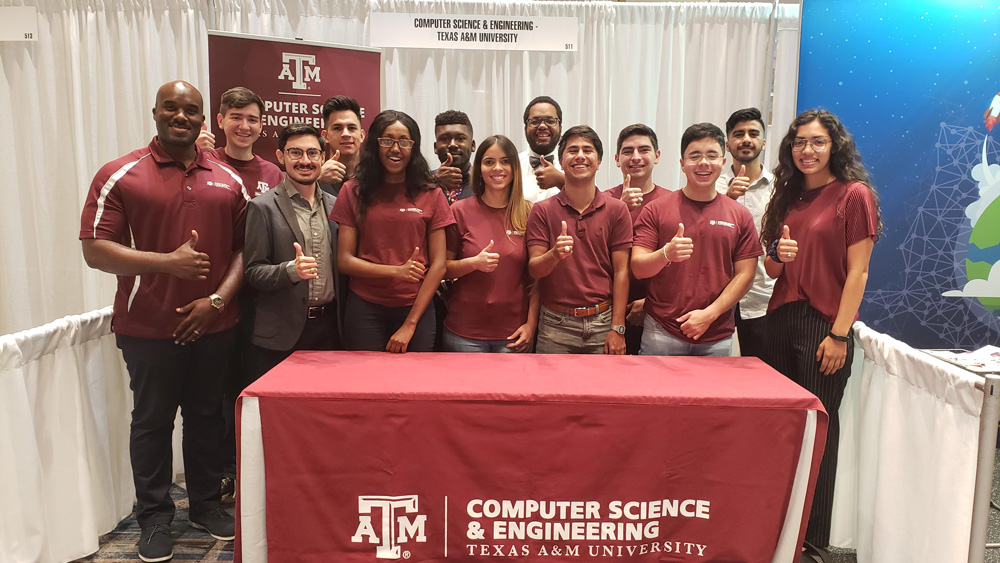
Sixteen students from the Department of Computer Science and Engineering at Texas A&M University recently attended the 2019 Richard Tapia Celebration of Diversity in Computing Conference in San Diego, California. The group was led by Dr. David Kebo Houngninou, instructional assistant professor in the department.
Founded in 2001, the three-day event brings together students, faculty and professionals from all backgrounds and ethnicities to acknowledge, promote and celebrate the significant contributions of diverse people in computing.
The theme of this year’s conference, “Diversity: Building a Stronger Future,” highlighted the importance of diversity in computing innovation for the future, and the critical role that the contributions of a diverse workplace plays.
During the conference, attendees could participate in technical and development workshops, a poster session and several networking opportunities with recruiters from various universities and companies that were in attendance.
“As it was my first time attending, I didn’t know what to expect. In the end it turned out to be a rich and colorful experience for me where I learned a lot about not only tech, but also about diversity and inclusive behaviors in general,” said graduate student Sarra Bounouh. “All in all, the Tapia Conference was such a positive and impactful moment for me, and I would love to attend another one in the future.”
The 2020 Tapia Conference will be held in Dallas, Texas.
The computer science and engineering department has been a long-time supporter of the annual conference. The Tapia Conferences are sponsored by the Association for Computing Machinery, presented by the Center for Minorities and People with Disabilities in Information Technology, and are in cooperation with the Computing Research Association.